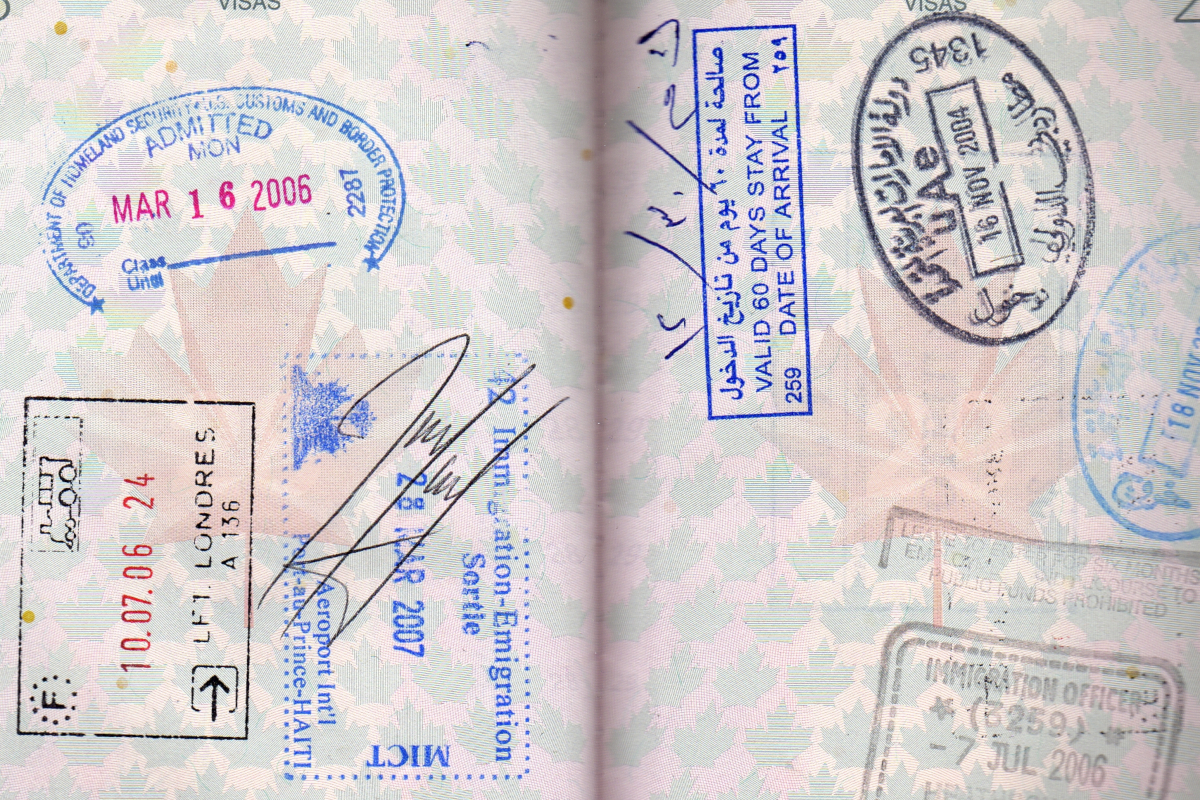Schengen visas: Private contractors follow “lax” approach and “enjoy wide and unmonitored access” to applicant data
Topic
Country/Region
20 June 2023
The Schengen visa application process is plagued by a host of problems, including systematic issues with long processing times, “recurrent deficiencies” in data protection, and a general lack of transparency, finds a non-paper prepared by the Commission services and obtained by Statewatch through an access to documents request. The non-paper, circulated to national delegations to the Council in April, is based on a 2022 evaluation of Schengen visa processing carried out in Riyadh, Beirut, Dakar, Istanbul, and New Delhi.
Support our work: become a Friend of Statewatch from as little as £1/€1 per month.

Image: Marco Verch Professional Photographer, CC BY 2.0
Failure to meet deadlines
The non-paper observes that “deadlines set out in the Visa Code are systematically not complied with.” This was true in several locations both for the deadline to grant an appointment to lodge an application, as well as for the 15 days standard processing time. As the authors comment, this means that obtaining a Schengen visa has become “unpredictable” and can take many months, even for frequent travelers.
External service providers
Issuing visas has historically been a task that has fallen within the purview of pubic authorities. However, in recent years, Schengen country consulates have increasingly outsourced large parts of the visa application process to private companies. Although external service providers do not directly take decisions on whether to issue a visa, as the non-paper remarks, they are often:
“…the ‘Schengen visa offices’ in the eyes of the public. Most applicants can no longer have direct access to consulates and consulates rarely see visa applicants in person. Not only applicants depend on the quality of the work of these private companies, but the Member States and consulates do, too.”
The evaluation comments that it is “concerning” that external service providers “enjoy wide and unmonitored access to visa application data and have the possibility to manipulate it easily without supervision by the Member State’s authorities, as was found to be the case in some evaluations.” While the initial text of the Visa Code, which entered into force in 2010, stipulated that external service providers could be cooperated with as “as a last resort”, the current Visa Code no longer contains this more restrictive wording.
Data protection
As the report points out, the role of external service providers has important implications for data protection, especially given the often sensitive nature of information shared in the Schengen visa application process:
“As part of Schengen visa processing, Member States and consulates as well as external service providers – which are private companies - obtain and process large quantities of personal data: fingerprints, bank statements, family composition certificates, company and tax records, and sometimes even data regarding the health situation of visa applicants.”
Concerns about data protection and the involvement of private contractors in the visa procedure have been raised for years: for instance, they already feature prominently in the first data protection report on the EU's Visa Information System (VIS) from 2015.
One concern is that data localization provisions in some countries, such as Russia and China, are increasingly strict and will “start applying to all private companies including external service providers, which are not protected by consular or diplomatic privileges.” The evaluation speculates that the continuation of current data practices could “provide a potential pathway for foreign governments to obtain access to the data of visa applicants to the EU.”
There are also other mechanisms that might result in data being obtained by non-EU governments: for instance, the most recent agenda of the Council's Visa Working Party mentions as a discussion point a “request from the antimonopoly commission of the Republic of Armenia for the external service provider to share information.”
Apart from specific concerns about data poaching by non-EU governments, the non-paper also comments on problems with data security in the visa procedure more generally:
“…evaluation teams continue to observe lax approaches even at some consulates: e.g. piles of CDs containing fingerprints are kept in the archive, and the VIS Mail system, which was developed by eu-LISA to provide a highly secure communication platform to exchange personal data between Member States’ visa authorities, is still not used by many consulates.”
The evaluation characterizes the impact of data security deficiencies and other concerns on visa applicants as “substantial and clearly not positive.” It further notes that incomplete or incorrect data entered into the VIS “is still not uncommon”.
Poor quality
The non-paper also goes on to observe that information provided to applicants on different websites is often “outdated or contradictory”, that “important pieces of information are frequently missing or hidden”, that some member states used an outdated visa application form, and that all of these difficulties are compounded by “the practical impossibility to directly contact the consulates for specific information” and a “lack of adequate support from external service providers”.
As the authors observe:
“On the one hand, the implementation of the respective provisions of the Visa Code remains suboptimal in many Member States. On the other hand, consulates report that the quality of the applications is decreasing. It seems unreasonable to expect good quality applications while failing good quality information regarding the visa procedure.”
Visa decision-making
According to the non-paper, no significant deficiencies were found in terms of the actual visa decision-making process. However, it is worth noting that bureaucrats have an extremely high level of discretion in decisions related to Schengen visas, which often hinge on caseworkers' subjective perception of whether a person has presented convincing evidence of their “rootedness” and their intent to not exceed a temporary stay; there are thus often few hard criteria on the basis of which rejections might be disputed.
In a 2014 ruling by the Berlin administrative court involving a woman who appealed the rejection of her application for a Schengen visa, for instance, the court found that:
“…at best, the Visa Code grants the applicant a worthless claim because it depends on the discretion of the authority... the authority may assess the facts known to it arbitrarily as to whether the required rootedness exists ... Where the authority is free, the court has nothing to examine.”
Civil society organizations have often accused EU consulates of using the refusal of visas to pursue political goals. A campaign last year characterized mass refusals of visa applications from citizens of Maghreb countries by French consulates as “nothing more than a collective, unfair punishment, indiscriminately targeting all Algerians, Moroccans or Tunisians.”
Since 2020, Article 25a of the Visa Code has also introduced the possibility of formally sanctioning countries for not cooperating on deportations by obstructing citizens' access to Schengen visas. Sanctions were put in place against The Gambia in October 2021 and have been proposed against Senegal and Iraq, but have not yet been implemented.
Digitalizing the visa application procedure
Plans to digitalize the visa application process have angered private companies involved in the current system, as it will remove the need for their services.
“The regulation looks to introduce the possibility of applying online, replacing paper-based procedures and reducing the number of in-person visits to embassies or consulates to only one. With few exceptions, all Schengen visa applications will be made on one central website,” explains an article in EurActiv.
This may make the process simpler, but seems unlikely to do anything to deal with the substance of decision-making on Schengen visa applications.
Author: Kelly Bescherer
Our work is only possible with your support.
Become a Friend of Statewatch from as little as £1/€1 per month.
Further reading

EU: Simplify visa suspension to limit asylum applications, says Swedish Presidency
The Swedish Council Presidency says there is an “evident” need to revise the EU’s visa suspension mechanism due to “a near-record number of asylum applications in 2022” from citizens of visa-free countries and an “extremely cumbersome” process for removing countries from the visa-free list.

Statement on French visa policy: discrimination and injustice
28 organisations from France, Morocco, Tunisia and Belgium yesterday published a statement denouncing France's refusal of visas to citizens of Maghreb countries "as a sanction because the latter refuse to repatriate their undocumented nationals." The statement condemns the approach of the French authorities as "a collective, unfair punishment, indiscriminately targeting all Algerians, Moroccans or Tunisians."

EU: Linking development aid to deportation compliance under discussion in the Council
A note from the French Presidency of the Council on the annual implementation of the visa readmission mechanism discusses "the place of readmission levers in the overall management of the relationship with third countries".
Previous article
Schengen states make new call for border wall funds
Next article
Closer security cooperation between EU and Latin America on the cards
Spotted an error? If you've spotted a problem with this page, just click once to let us know.

